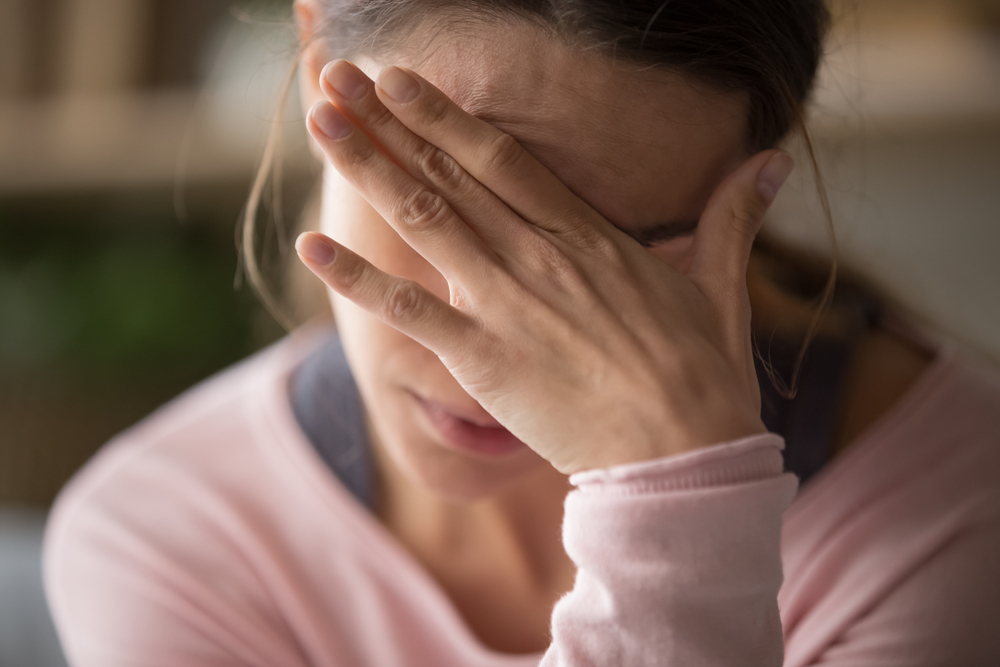Many people worry that they may become addicted to sleeping pills. Sleeping pills are often prescribed for the short-term treatment of severe insomnia. They fall into the category of sedative-hypnotics which also includes barbiturates (phenobarbital, pentobarbital) and benzodiazepines (Xanax, Klonopin).
The most common sleeping pills are Ambien, Sonata, and Lunesta. They act on the same GABA receptors in the brain as benzodiazepines but they tend to have fewer side effects. However, similar to benzodiazepines, you can become addicted to sleeping pills. Continue reading to find out more about sleeping pills, sleeping pill addiction, and how you can overcome dependence.
Popular Sleeping Pills
Sleeping pills are part of a group of medicines known as Sedative-Hypnotics, which include Barbiturates and Benzodiazepines such as Xanax. Sleeping pills are classified as “Z-drugs,” referring to the fact that they put people to sleep. Some of the most frequently prescribed and abused sedative-hypnotic sleeping pills include the following:
Ambien
Ambien is a Sedative-Hypnotic drug. Ambien works by stimulating GABA, a neurotransmitter that slows down the brain and central nervous system (CNS). It is used to treat insomnia but is limited to short-term treatment. A fast-release form of Ambien is used to initiate sleep, and an extended-release version is used to maintain sleep. Both forms of Ambien can result in Ambien addiction.
Sonata
The non-Benzodiazepine hypnotic Sonata, which is used to treat insomnia, is a brand name for Zaleplon. Along with Lunesta and Ambien, Sonata is one of the most well-known prescription Z-drugs in the United States. Sonata is a Schedule IV controlled substance just like Lunesta and Ambien. People might overuse Sonata as a sleep aid as a result of its rapid-acting nature. Although Sonata is considered less habit-forming than Ambien and Lunesta, it is more likely to cause withdrawal symptoms if you suddenly stop using it after using it for approximately two weeks.
Lunesta
Lunesta is a sleep aid that is frequently prescribed to treat sleep problems. Because it is a prescription medication, Lunesta is often considered to be a safe sleep medication; this minimizes its addictive potential. Although Lunesta is frequently prescribed for short-term, acute insomnia, most doctors will only prescribe it because it has a high potential for addiction and abuse. Individuals who stop taking Lunesta after long-term usage are most likely to suffer withdrawal symptoms such as insomnia and anxiety. It can be challenging to overcome an addiction to Lunesta, so rehabilitation is often necessary.
Why Are Sleeping Pills Prescribed?
In many cases, when people are prescribed sleeping pills for short periods, the treatment is successful. The individual may also find alternative ways to fall asleep and stay asleep. They may get over a stressful life event, find natural remedies or use yoga to help them relax at the end of the day. In any case, they are no longer reliant on a drug to help them to sleep.
For other people, their relationship with sleeping pills is a lot more complicated. These drugs are widely prescribed, and many people assume they are safe to use. However, they eventually find that they can’t sleep unless they take a pill. Over time they develop a tolerance and they need higher and higher dosages to experience the same effects. They eventually begin “popping pills”. This is not a healthy situation even if the drugs were initially prescribed by a doctor.
Ambien and similar drugs act fast and can be used as needed instead of on a strict schedule. However, some people get into the habit of using them every time they have difficulty sleeping. They may also use them if they face an anxiety-inducing situation and they want to calm down or avoid the problem.
What If You Have Insomnia
Before you ask your doctor for sleeping pills or think you have insomnia, see if any of these issues affect you. Here are some typical signs and symptoms of insomnia:
- Difficulty falling asleep: If it takes you more than 30 minutes to fall asleep at night, you may have insomnia.
- Waking up frequently during the night: If you wake up multiple times during at night and have trouble falling back asleep, you may have insomnia.
- Waking up too early in the morning: If you wake up earlier than you planned and have trouble falling back asleep, you may have insomnia.
- Daytime fatigue and sleepiness: If you feel tired, sleepy, or irritable during the day, you may have insomnia.
- Difficulty concentrating or remembering: Insomnia can cause difficulty concentrating or remembering things.
- Anxiety or depression: Insomnia can also be a symptom of anxiety or depression.
If you are experiencing any of these symptoms on a regular basis, it’s important to talk to your doctor or a sleep specialist to determine the underlying cause and appropriate treatment for your insomnia.
Effects of Sleeping Pills
When sedatives are not used as prescribed, this is considered abuse. When you take high doses of sleeping pills, you get the same feel-good effect as that produced by benzodiazepines. Sedatives can also cause hallucinations when you take them but fight the urge to sleep.
Other effects of sleeping pills include:
- Dizziness
- Dreamless sleep
- Lack of coordination
- Lightheadedness
- Lower anxiety
Sleeping pill abuse may be traditionally associated with an older demographic. However, the incidence among high school and college students has increased. Sedatives can increase the effects of alcohol or create a similar feeling on their own. Many young people find sleeping pills to be readily available in their homes. They may also be able to get their own prescriptions quite easily.
Sedatives come with a warning that they should not be used with alcohol. Doctors and pharmacists usually remind patients of this. However, some people still drink while using sedatives. People who have severe addictions may use alcohol to increase the effects of the pills. This can be deadly since it increases the risk of overdose. Individuals also combined sedatives with antidepressants, painkillers or benzodiazepines.
What Are the Signs of Becoming Addicted to Sleeping Pills?
Often, people don’t even realize they’ve become dependent or addicted to sleeping pills until they stop taking them. They may run out of their supply or forget to pack their pills when they go on vacation. All of a sudden, they start experiencing withdrawal symptoms. Other signs of dependence or addiction include:
- Trying and failing to quit on several occasions
- Going to more than one doctor for refills
- Experiencing memory loss because of drug use
- Experiencing cravings for sleeping pills
- Taking the medication despite negative effects
- Increasing the dosage without talking to a doctor
Recovery from sleeping pill addiction can be very difficult. This may be surprising, since these drugs are prescribed by doctors. However, that doesn’t make them less dangerous. The longer you abuse them, the harder it gets to recover since the brain becomes accustomed to the effects.
Recovering addicts often experience even worse insomnia than they did before when they stop taking the drug. This drives many of them to use again. However, you need to know that “rebound insomnia” is a common occurrence. To minimize this and other withdrawal symptoms, you should seek out a medically assisted detox.
Dangers of Mixing Sleeping Pills with Other Substances
It is crucial to be aware of the risks involved with taking sleeping pills to help you sleep better. Make sure to follow all directions provided by your physician when taking sleeping pills, as they can have serious repercussions when taken with other substances. The following substances have been known to have adverse consequences when combined with sleeping pills.
Alcohol
When sleeping pills and alcohol are consumed in large quantities, they can both cause sedation and interfere with thinking. This combination can result in severe sedation, which might even result in respiratory arrest and death. This substance combination has been known to cause trouble focusing and completing tasks due to its adverse effect on the body.
Pain Killers
Taking benzodiazepines with painkillers (such as opioids) can be dangerous. Both drugs affect the level of awareness, cognition, and respiratory function. In addition, when the amounts are excessive, it can cause an overdose.
Dangers Of Taking Sleeping Pills Everyday
If you take a sleeping pill every night over a prolonged period of time, you may develop a tolerance to the medication. This means that the same dose of the sleeping pill will become less effective at helping you fall asleep and stay asleep. If sleeping pills are used for an extended period, users may experience permanent undesirable effects like high blood pressure, irregular heartbeat, and depression.
Effects of Sleeping Pill Abuse
Sleeping pills, as previously stated, are a category of drugs used to treat insomnia and other sleep issues. The most popular sleep aids are Ambien, Sonata, and Lunesta. These drugs are powerful and should be taken in small doses for short-term treatment of sleep issues. A patient’s need for sleep help should be re-assessed after a period of 10-28 days. Patients are informed about this by the pharmaceutical company. If a person uses sleeping pills for a longer period of time or at higher doses, the risk of negative outcomes is increased.
Amnesia, Sonata, and Lunesta are just a few of the drugs that have been connected to increased risks of falls, injuries, and car accidents. Some research has also shown a significantly higher proportion of cancer patients who regularly take sleeping pills. According to the FDA, sleeping pills may be dangerous when taken together with other prescription drugs, as they may lower blood pressure, heart, and breathing rates.
Many medical professionals are worried about the number of Americans who depend on over-the-counter drugs to help them sleep. Benadryl and Tylenol PM, which contain diphenhydramine, may seem harmless, however they have a significant impact on the body. These drugs lower brain function, making it difficult to stay attentive. Non-prescription medications like these are detrimental to learning and memory in the long run, especially for seniors. The Journal of the American Medical Association has found that regular use of these drugs is strongly associated with Alzheimer’s disease.
How To Sleep Without Sleeping Pills
Here are some alternative methods to fall asleep that you can try:
- Set a consistent sleep and wake schedule.
- Create a relaxing sleep environment by keeping your bedroom cool, dark, and quiet.
- Avoid electronic devices such as smartphones, tablets, or laptops before bedtime.
- Try relaxation methods such as deep breathing, meditation, or yoga to reduce stress and calm your mind
- Exercise regularly during the day, but avoid strenuous physical activity close to bedtime
- Limit caffeine, alcohol, and nicotine consumption, especially in the hours leading up to bedtime
- Use your bed only for sleeping and avoid doing other activities such as watching TV or working in bed
- Try natural sleep aids such as herbal teas, essential oils, or supplements like melatonin (after consulting with a healthcare professional)
- Cognitive Behavioral Therapy (CBT) can also help improve sleep patterns by addressing negative thoughts or behaviors that may be interfering with your ability to sleep.
Contact Asheville Recovery Center to Learn About Available Treatment Options
If you or a loved one is addicted to sleeping pills, there is nothing to be ashamed of. With the right treatment and support, you can begin to live a healthier life. At Asheville Recovery Center, we provide individualized addiction treatment options that take your unique circumstances into consideration.
No matter how long you’ve been trying to quit, recovery is still possible. Call us today to ask questions about our services or schedule a consultation. We have a team of professionals waiting to assist you.










